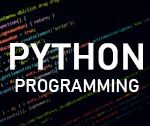Best Network Security Courses & Certifications in India

Best Network Security Courses & Certifications in India
Best Network Security Courses & Certifications
Introduction:
In the modern globalized era, characterized by extensive interconnectivity, the significance of network security has reached unprecedented levels. This is primarily due to the fact that data serves as the fundamental resource for both enterprises and individuals, making the safeguarding of networks an imperative undertaking.
In addition, the increasing complexity and advancement of cyber dangers necessitate a heightened need for proficient individuals capable of safeguarding networks and systems against malevolent entities. In order to pursue a profession in network security or enhance one’s existing competence, it is important to engage in a rigorous educational program and obtain relevant certifications.
Moreover, this article aims to examine a selection of network security courses and certifications that are considered to be very effective in fostering the acquisition of information and skills necessary for success in the ever-evolving field of network security.
Network Security Courses Online
Online network security courses provide a convenient and flexible means of acquiring fundamental knowledge and skills pertaining to the domain of network security. For anyone seeking to either initiate a career in cybersecurity or augment their current proficiency, the subsequent enumeration comprises a selection of esteemed online network security courses that warrant consideration:
- Craw Security:
- Basic Networking Course,
- Super Learning:
- In-Depth Networking Program,
- Bytecode Security:
- Basic Networking Course,
- Crawsec Cyber Security Institute:
- Network Security Training,
- LinkedIn Learning:
- Various Network Security Courses,
- Cybersecurity Specializations on Various Platforms,
- Certification-Specific Training,
- Open Online Courses and YouTube Channels, etc.
Network Security Courses for Beginners
There exist numerous online courses and resources specifically designed to cater to the needs of novice individuals seeking to acquire knowledge in the domain of network security. These educational materials aim to furnish a comprehensive grounding in this subject matter.
When selecting a network security course as mentioned in the aforementioned paragraph tailored for beginners, it is imperative to evaluate one’s current level of understanding and identify certain domains of interest within the field of network security. Moreover, it is important to take into consideration one’s personal preference for video-based courses, written resources, or interactive learning platforms. Developing a robust understanding of network security serves as a commendable initial step toward embarking on a fulfilling professional trajectory within the realm of cybersecurity.
Network Security Course Syllabus
The prominent Basic Networking Course propagated by highly trained mentors is facilitated by Craw Security under the guidance of many qualified training professionals with real-world experience. Moreover, Craw Security delivers its world-famous Networking Security Course with many years of quality experience.
- Module 01: Computer Networking
- Module 02: Introduction To Networking
- Module 03: Ipv4 And Ipv6
- Module 04: Subnet Mask, CIDR, And Subnetting
- Module 05: VLSM, Wild Card, Summarization
- Module 06: OSI Model
- Module 07: TCP/IP Model
- Module 08: Network Devices, Cabling, Packet Tracer
- Module 09: ARP and ICMP
- Module 10: Packet Flow
- Module 11: Routing – Static And Dynamic
- Module 12: Static Routing – Next Hop Ip And Exit Interface
- Module 13: Dynamic – RIP
- Module 14: EIGRP
- Module 15: OSPF
- Module 16: Redistribution
- Module 17: Remote Services ( Telnet And SSH )
- Module 18: DHCP
- Module 19: ACL
- Module 20: Switching
- Module 21: L2 Protocols – CDP, VLAN, STP, DTP, VTP
- Module 22: Ether-Channel
- Module 23: Port Security
Advantages of Network Security Certifications
Network security certifications provide a multitude of benefits for persons who are pursuing a profession in cybersecurity or aspiring to enhance their current professional trajectories. There exist some notable benefits associated with obtaining network security certifications:
| Validation of Skills and Knowledge | Certifications serve as a means of validating an individual’s proficiency and understanding in the field of network security, offering concrete evidence of their capabilities to both employers and colleagues. |
| Career Advancement | Certifications have the potential to provide individuals with increased access to employment prospects and more lucrative roles within the network security industry. A significant number of businesses exhibit a preference for or mandate the presence of qualified specialists in positions pertaining to security. |
| Increased Earning Potential | Certified professionals frequently enjoy more remuneration in comparison to their non-certified peers. Certifications have the ability to substantially enhance one’s earning capacity within the cybersecurity sector. |
| Global Recognition | The majority of network security certificates possess global recognition and esteem, hence augmenting one’s reputation and marketability as a cybersecurity professional on an international scale. |
| Competitive Edge | Certifications confer a distinct advantage in the labor market, enhancing the prominence of your curriculum vitae relative to individuals who do not possess certification qualifications. |
| Expanded Knowledge | The process of preparing for certification tests entails the comprehensive examination of subject matter and hands-on application, resulting in a heightened comprehension of network security principles, tools, and optimal methodologies. |
| Networking Opportunities | Certification programs frequently offer participants the opportunity to engage in special forums, groups, and networking events, facilitating connections with fellow certified professionals and field experts. |
| Current Industry Insights | Certification programs are designed to continuously update participants with the most current cybersecurity trends, risks, and technology, thereby ensuring the acquisition and maintenance of expertise in this rapidly expanding industry. |
| Demonstrated Commitment | Obtaining a certification serves as evidence of an individual’s dedication to ongoing education and advancement in their professional growth, attributes that have significant esteem within the realm of cybersecurity. |
| Career Flexibility | Certifications are accepted across many industries and organizations, giving freedom to pursue a range of network security responsibilities and adapt to shifting career aspirations. |
| Meeting Compliance Requirements | Specific certifications, like CISSP or CISM, have the potential to satisfy compliance obligations for enterprises operating in regulated sectors, hence enhancing their compliance endeavors. |
| Personal Satisfaction | Obtaining a network security certification can yield personal benefits, enhancing one’s self-assurance and drive to flourish within the realm of the cybersecurity profession. |
Best Network Security Certification Exam Guides
The utilization of appropriate examination guides and study resources can greatly impact one’s success when preparing for network security certification tests. The following compilation presents a selection of highly regarded network security certification examination guides and study materials for well-recognized certifications:
- Certified Information Systems Security Professional (CISSP)
- The book titled “CISSP All-in-One Exam Guide” was authored by Shon Harris and Fernando Maymi.
- The book titled “CISSP Official (ISC)² Practice Tests” was authored by Mike Chapple and David Seidl.
- Certified Information Security Manager (CISM)
- The book titled “CISM Certified Information Security Manager All-in-One Exam Guide” is authored by Peter H. Gregory.
- Certified Information Systems Auditor (CISA)
- The book titled “CISA Certified Information Systems Auditor All-in-One Exam Guide” was authored by Peter H. Gregory.
- Cisco Certified Network Associate (CCNA) Security
- The book titled “CCNA Cyber Ops SECOPS #210-255 Official Cert Guide” is authored by Omar Santos and Joseph Muniz.
- CompTIA Security+
- The book titled “CompTIA Security+ Study Guide: Exam SY0-601” was authored by Emmett Dulaney and Chuck Easttom.
- Certified Ethical Hacker (CEH)
- The book titled “CEH Certified Ethical Hacker All-in-One Exam Guide” was authored by Matt Walker.
- Certified Information Security Technician (CIST)
- The book titled “CIST Certified Information Security Technician All-in-One Exam Guide” was authored by Robert R. Shimonski.
- GIAC Security Essentials (GSEC)
- The book titled “GSEC GIAC Security Essentials Certification All-in-One Exam Guide” was authored by Brian T. O’Hara and Ben Malisow.
- CompTIA Network+ (for foundational knowledge)
- The book titled “CompTIA Network+ Study Guide: Exam N10-008” was authored by Todd Lammle.
- Offensive Security Certified Professional (OSCP):
- The utilization of the official OSCP test guide and training materials offered by Offensive Security is vital for individuals seeking to adequately prepare for the OSCP certification.
Hands-on Network Security Course Practices
The inclusion of hands-on network security courses and practices is of utmost importance in the development of practical skills and the readiness to tackle real-world cybersecurity threats. The following is a selection of practical exercises in network security that offer significant advantages:
| Setting Up a Lab Environment | Design and implementing a laboratory setting, either in a virtual or physical form, that accurately replicates network configurations found in real-world scenarios. This enables individuals to engage in the exploration and evaluation of security tools and methodologies without causing any disruptions or alterations to operational systems. |
| Network Configuration and Hardening | Engage in the practical application of configuring network equipment such as routers, switches, and firewalls. Acquire knowledge on fortifying these devices through the implementation of security best practices, including the use of access control lists (ACLs) and firewall rules. |
| Firewall Rule Analysis | Conduct a comprehensive analysis and evaluation of firewall rule sets. The objective is to discern and remove superfluous regulations, guaranteeing that solely indispensable traffic is permitted while obstructing potential hazards. |
| Intrusion Detection and Prevention Systems (IDPS) | Establish and configure systems for the detection and prevention of unauthorized intrusions. Acquire the necessary skills to conduct analysis on alerts, engage in the investigation of probable problems, and refine the precision of detection criteria. |
| Vulnerability Scanning and Assessment | Perform vulnerability evaluations utilizing software tools such as Nessus or OpenVAS. The task at hand involves the identification and prioritization of vulnerabilities, followed by the implementation of fixes or mitigation techniques. |
| Incident Response Simulation | The act of simulating security incidents, such as the deliberate introduction of malware infections or unauthorized network intrusions, serves the purpose of facilitating the development and refinement of incident response processes. This includes activities related to containment, eradication, and recovery in the event of a security breach. |
| Network Traffic Analysis | Utilize network packet capture tools such as Wireshark for the purpose of analyzing network traffic. The objective is to identify irregularities, questionable behaviors, and possible security risks present in network packets. |
| Penetration Testing (Pen Testing) | Acquire hands-on experience in the field of ethical hacking and penetration testing. Acquire the knowledge and skills necessary to discern and capitalize on vulnerabilities in order to evaluate the integrity of network security. |
| Security Information and Event Management (SIEM) | The implementation and setup of Security Information and Event Management (SIEM) solutions, such as Splunk or ELK Stack, are undertaken to effectively gather, correlate, and analyze data pertaining to security events. Engage in the practical application of designing personalized dashboards and establishing alert mechanisms. |
| Secure Network Design | The task at hand involves the creation of network architectures that prioritize security, taking into account key principles such as network segmentation, DMZs (Demilitarized Zones), and zero-trust models. |
| Encryption and VPNs | To enhance the security of data during transmission, it is important to properly configure encryption algorithms and implement virtual private networks (VPNs). This academic text aims to provide an overview of SSL/TLS, IPsec, and VPN tunneling protocols. |
| Wireless Network Security | The establishment and safeguarding of wireless networks, with a comprehensive comprehension of the significance of robust authentication, encryption, and access controls. |
| Security Monitoring and Analysis | Deploy network monitoring tools to effectively identify and promptly address security events in a timely manner. Engage in the exercise of scrutinizing records and alerts for the purpose of analysis. |
| Web Application Security Testing | Conduct comprehensive security evaluations of online applications, encompassing activities such as vulnerability scanning, testing for SQL injection vulnerabilities, and analysis of cross-site scripting (XSS) vulnerabilities. |
| Secure Coding Practices | Acquire knowledge pertaining to the fundamental tenets of secure coding and optimal methodologies for discerning and mitigating prevalent security risks within the realm of software development. |
| Forensics and Investigation | This inquiry delves into the many methodologies employed in the field of digital forensics for the purpose of acquiring, safeguarding, and scrutinizing evidentiary material pertaining to security breaches. |
| Cloud Security | This course aims to enhance participants’ comprehension and application of securing cloud settings. This includes the configuration of security groups, identity and access management (IAM), as well as the monitoring of cloud-based resources. |
| Continuous Learning | To remain well-informed on contemporary network security risks, technologies, and strategies, individuals can actively engage in various activities such as engaging in capture the flag (CTF) challenges, online security competitions, and attending cybersecurity conferences. |
Network Security Course CISCO
Cisco provides a range of network security courses that aim to furnish individuals with the requisite skills and information for effectively safeguarding networks and network devices. Cisco offers a selection of network security courses that are recognized for their significance:
1. Cisco Certified Network Associate (CCNA) Security:
| Course Overview | The CCNA Security certification is designed to provide individuals with a foundational understanding of network security principles and practices at an introductory level. The subject matter encompasses various areas including security infrastructure, secure access, virtual private networks (VPNs), firewall technologies, intrusion prevention systems (IPS), and other related issues. |
| Target Audience | This course is designed for anyone who is interested in acquiring fundamental knowledge in network security, including network administrators, security professionals, and those seeking to enhance their understanding of network security principles. |
| Certification | The successful completion of this course will adequately equip individuals for the CCNA Security certification examination. |
2. Cisco Certified CyberOps Associate:
| Course Overview | The certification and course offered aim to equip individuals with a comprehensive understanding of cybersecurity operations, encompassing various aspects such as security monitoring, network intrusion analysis, incident response, and security policies and procedures. |
| Target Audience | Individuals with a keen interest in the field of cybersecurity operations and network security analysis. |
| Certification | The successful completion of this course equips individuals with the necessary knowledge and skills required to obtain the Cisco Certified CyberOps Associate certification. |
3. Implementing and Operating Cisco Security Core Technologies (SCOR):
| Course Overview | The inclusion of SCOR within the Cisco Certified Network Professional (CCNP) Security curriculum is noteworthy. This course encompasses advanced subjects in the field of network security, encompassing principles related to network security, secure network design, cloud security, content security, and endpoint protection. |
| Target Audience | Individuals who are involved in the field of network security, including engineers, administrators, and professionals are actively working towards obtaining the CCNP Security certification. |
| Certification | The successful completion of this course will adequately equip individuals for the CCNP Security certification examination. |
4. Securing Networks with Cisco Firepower (SNCF):
| Course Overview | The primary area of concentration for SNCF is the utilization of Cisco’s Firepower Threat Defense technology, which encompasses a range of sophisticated firewall functionalities, intrusion prevention mechanisms, site-to-site virtual private networks (VPNs), and several other security capabilities. |
| Target Audience | The individuals tasked with the implementation and administration of Cisco Firepower products are network and security specialists. |
| Certification | This course aids in the readiness for the CCNP Security certification. |
5. Securing the Web with Cisco Web Security Appliance (SWSA):
| Course Overview | This study investigates the Cisco Web Security Appliance (WSA) and its efficacy in safeguarding against web-based vulnerabilities. The subjects encompassed in this discussion consist of proxy services, authentication mechanisms, decryption procedures, and further related topics. |
| Target Audience | The individuals responsible for configuring and overseeing online security solutions are network and security specialists. |
| Certification | Successful learners will obtain a CCNP Security certification. |
6. Securing Email with Cisco Email Security Appliance (SESA):
| Course Overview | The Secure Email Security Appliance (SESA) is an examination of Cisco’s Email Security Appliance (ESA) with the objective of safeguarding email communications. The subject matter encompasses various areas like email security rules, anti-spam measures, anti-virus protocols, encryption techniques, and data loss prevention strategies. |
| Target Audience | The individuals tasked with the configuration and administration of email security systems in a professional capacity. |
| Certification | This course is an integral component of the CCNP Security certification pathway. |
FAQs
About Network Security Courses
1: What course should I take to network security?
For networking security, you may take the CISCO courses highly developed for enhancing the security features among networks. Learners who have a keen intention to learn network security right from the beginning should opt for the Basic Networking Course by Craw Security right under the nose of highly qualified network training professionals.
2: What are network security courses?
Network security courses are academic programs that offer teaching and training on diverse facets of safeguarding computer networks and the information they transport against unwanted access, harm, interruption, or theft. The curriculum of these courses encompasses a diverse array of subjects pertaining to network security, encompassing principles, best practices, technologies, and tools in the field of cybersecurity.
3: Which security course is best?
The optimal security course is contingent upon one’s job objectives and existing proficiency. Prominent options encompass the Certified Information Systems Security Professional (CISSP), Certified Ethical Hacker (CEH), and CompTIA Security+ certifications, which offer comprehensive expertise in the field of information security.
4: What are the 5 types of network security?
The five types of network security are:
- Perimeter Security,
- Access Control,
- Authentication and Authorization,
- Encryption,
- Security Monitoring, and Incident Response,
5: Should I do CCNA or security+?
The selection between CCNA (Cisco Certified Network Associate) and Security+ is contingent upon one’s chosen professional trajectory. The CCNA certification is well-suited for individuals working in the field of networking, as it focuses specifically on networking concepts and technologies. On the other hand, the Security+ certification offers a more comprehensive understanding of security principles and practices, encompassing a wider range of security-related topics. The selection should be made according to one’s personal interests and objectives.
6: Can I teach myself network security?
Yes, you can teach yourself network security. A plethora of internet materials, courses, and tutorials are readily accessible. Nevertheless, enrolling in formal courses and obtaining certifications can offer a systematic approach to learning and serve as a means of validating one’s talents.
7: What are the 3 A’s of network security?
The 3 A’s of network security are:
- Authentication,
- Authorization, and
8: What is the difference between cyber security and network security?
The area of cybersecurity encompasses the safeguarding of various digital assets, including networks, hence exhibiting a comprehensive scope. The primary objective of network security is to ensure the protection of network infrastructure and data by emphasizing the preservation of integrity, confidentiality, and availability.
9: What are the 7 types of cyber security?
The 7 types of cybersecurity include:
- Network Security,
- Information Security,
- Application Security,
- Cloud Security,
- IoT (Internet of Things) Security,
- Endpoint Security, and
- Behavioral Security.
Conclusion
To wrap up, we would like to comment that network security is a critical aspect of modern cybersecurity, and pursuing the right courses and certifications is essential for career growth and success in this field. The certificates provided in this list are designed to accommodate individuals with diverse skill levels and career aspirations.
Therefore, whether you are at the initial stages of your professional journey or seeking to progress in the field of network security, you will find a certification that aligns with your objectives. It is crucial to note that maintaining awareness of current security trends and engaging in ongoing education regarding upcoming risks holds equal significance within this perpetually expanding field.
Hence, if you wish to learn more about network security, then you may join Craw Security, the Best Networking Training Institute in India with a lot of seasoned training professionals with years of technical experience and expertise in their respective fields. To know more about the same or book a demo session, give us a call at +91-9513805401 and have a word with our highly skilled educational consultants.
















